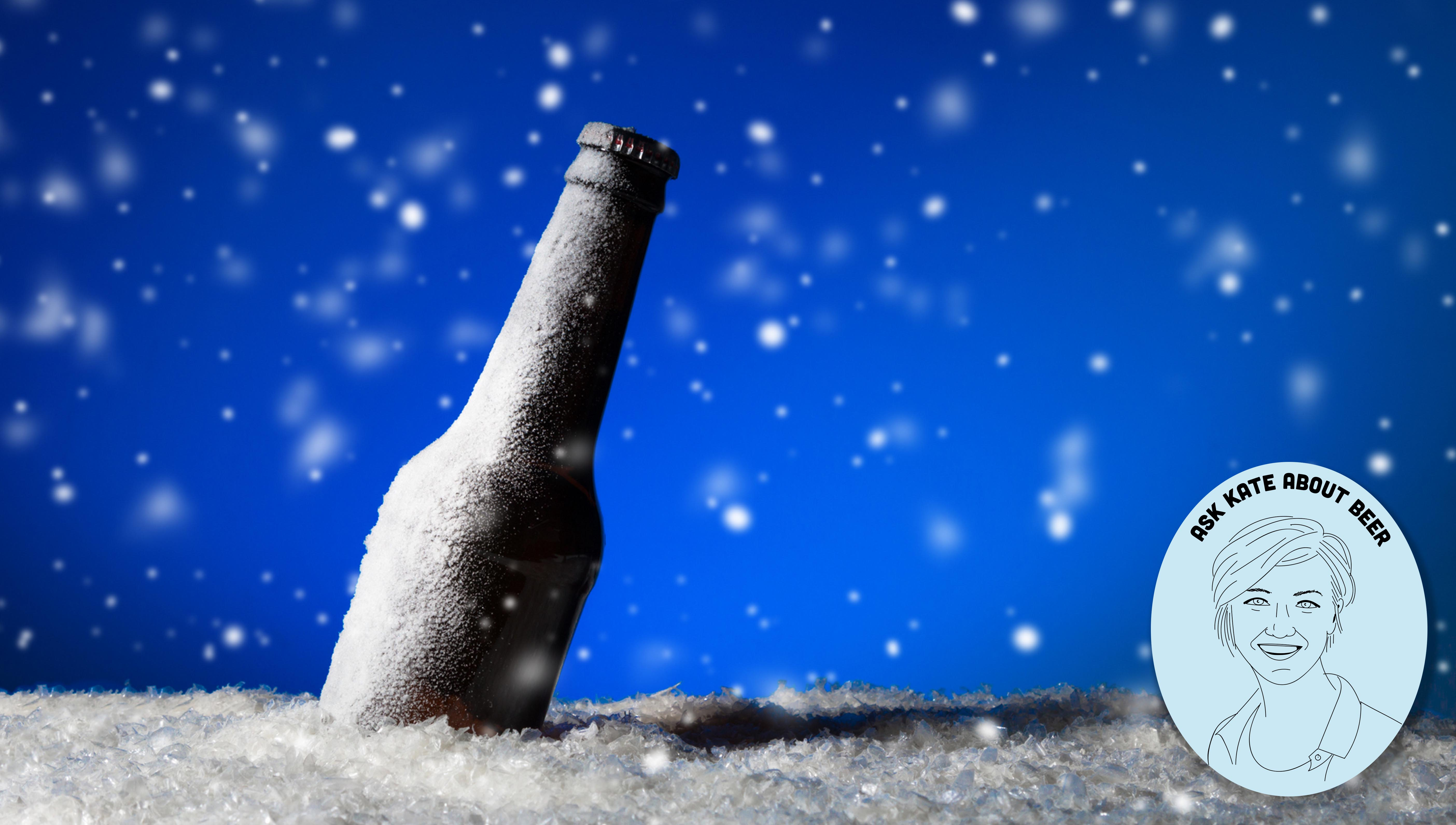Ask Kate About Beer: I Accidentally Froze My Beer. Is It Ruined?
Welcome to Ask Kate About Beer, in which The Takeout's resident beer expert answers everything you've ever wanted to know about beer but were too drunk to ask. Have a question? Shoot it to beer@thetakeout.com.
It is truly the best and worst of times. Winter is great because hey, your deck just turned into a giant fridge, but also, whoops, you just left that six-pack out overnight. (Unless you live in Phoenix. Then winter is just oh-I-can-actually-exist-outside time.) And so, this edition of my column is dedicated to those drinkers who've absentmindedly left their beers in the snow or freezer. Solidarity.
The question at hand is whether your bottled or canned beer—provided it hasn't shattered into tiny pieces—is still going to taste good enough to drink. And to answer that question, I called Matt Meadows, the draft beer quality ambassador for the Brewers Association and the director of field quality for New Belgium Brewing. He actually has both professional and personal experience with this very problem. He tells me distributor warehouses or refrigerated trucks sometimes go haywire, and beer gets accidentally frozen in transit. And on a personal level, years and years ago, his friends forgot about some cans of beer they'd left in their buddy's trunk, which subsequently froze. (We'll get to that story's ending later.)
Meadows says the most crucial question when your beer has frozen is whether the beer can or bottle has become unsealed. Because liquid expands when it freezes, the added volume and pressure can sometimes rupture the can's seal or the bottle's crown. If the vessel stayed sealed, he says the beer will taste normal once it's allowed to completely thaw again.
"If the vessel stays 100-percent sealed and if the beer is allowed to return back to a standard temperature, then Henry's Law dictates that carbonation will go back into solution in the same place it was before," he says.
But if the can has burst or the bottle's cap has popped off, your beer is probably toast.
"In that case, because you've pushed the CO2 out of solution, that's the first thing to gas off," he says. "If your vessel has stayed sealed, your carbonation will be fine. If not, it'll certainly be flat."
Now, if you're going to drink your previously frozen beer, Meadows cautions, make sure to let the beer completely thaw back to liquid before drinking it. Remember the story about the beer left in his buddy's trunk? He and his friends didn't let it thaw completely; instead, they popped the cans and drank the 2 or 3 ounces of liquid that had melted. That liquid was straight alcohol, because the water that makes up the majority of beer remained frozen.
"So when we each drank 12-13 ounces, we had actually just drank the equivalent of a six pack," he explains.
Don't do that.
Another reason to let the beer thaw completely is to avoid "chill haze," which can range from a slightly opaque sheen in your beer to straight-up floating bits or chunks. It's caused by the proteins coming out of solution and binding to each other, and while it won't make your beer taste or smell any different, it does look and feel a bit unappetizing. Let it thaw completely and you'll avoid the unsavory chill haze.
Lastly, Meadows offers a bit of advice for chilling beer quickly without resorting to the snow or your freezer: Stick bottles and cans in a bucket of salted ice water (we suggest the same for quickly chilling wine bottles!). Salt lowers water's freezing point, so the ice water surrounding your beer is actually colder than 32 degrees. It's a win-win. Your beer chills faster, and there's no risk of it freezing overnight.
